




Animal Welfare at Drusillas
The welfare of our animals is at the heart of everything we do. We know lots of our visitors are also passionate about animals, so we've compiled a list of frequently asked questions
Animal Welfare: caring for our animals
Animal welfare is at the heart of everything we do at Drusillas Park. Our Zoo Keepers are experts in their field and work very hard to ensure the psychological and physical welfare needs of all our animals are not only met but exceeded. Keepers go through extensive in-house and external professional development to ensure best practices in the various species cared for at Drusillas are always current and up to date.
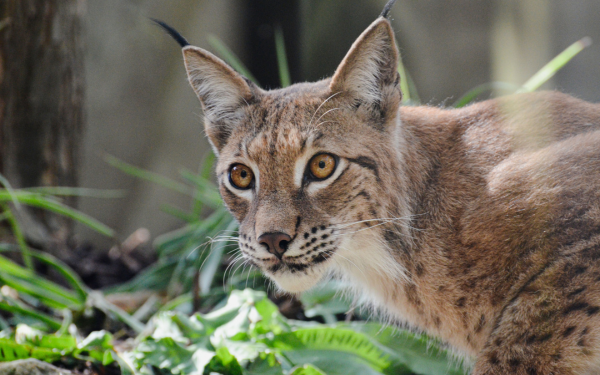
We have 10 inspections every year by more than four different external authorities to ensure the animals are well looked after – including DEFRA (Department for Environment Food and Rural Affairs), and the Secretary of State’s Standards in Modern Zoo Practice, a rigorous inspection looking at everything from diets, to habitat size, veterinary care, record keeping, animal welfare, and husbandry. We pass all the criteria at the highest standard; something we are very proud of.
We are also members of both EAZA (European Association of Zoos and Aquaria) and BIAZA (British & Irish Association of Zoos and Aquariums). They too undertake inspections in the form of accreditation programs, which means they can impartially review whether a zoo's animal welfare standards are being met. EAZA and BIAZA are both professional bodies dedicated to achieving the highest standards of animal care, conserving the natural world through research and conservation, and educating and inspiring visitors.
Zoos play a crucial role in conservation efforts by serving as centres for education, research, and species preservation. Through carefully managed breeding programs, zoos help maintain genetically diverse populations of endangered species, acting as a safety net against extinction.
By educating our visitors about the importance of biodiversity and the threats facing wildlife, zoos can inspire visitors to become stewards of the environment and support conservation initiatives. Furthermore, zoos conduct scientific research that contributes valuable data to broader conservation efforts, aiding in the understanding and protection of endangered species.
Through collaboration with other institutions and participation in species recovery programs, zoos actively contribute to the conservation of species both in captivity and in the wild. We can provide a platform for raising awareness, conducting research, and implementing conservation strategies, that ultimately works towards preserving our planet's precious biodiversity.
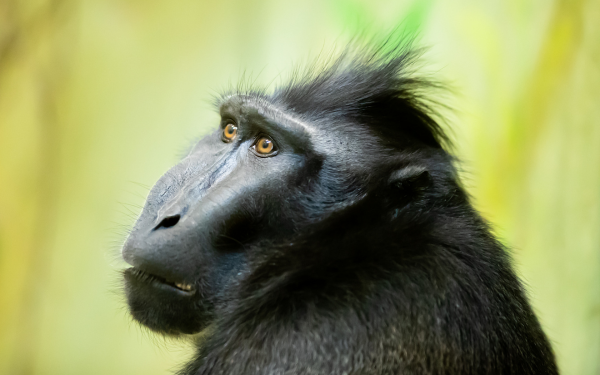
Drusillas is fortunate enough to care for many endangered species (some of which are critically endangered): Sulawesi black crested macaques and cotton-top tamarins, red pandas, lar gibbons, Bactrian camels, Rodrigues fruit bats, ring-tailed and black lemurs, to name a few. In the past few years, our endangered species have welcomed rare babies, helping to maintain the populations of animals in danger of vanishing from the planet for good.
Drusillas also partners with several conservation charities to raise funds and awareness for their incredibly important work. Our key conservation partner is The Sloth Conservation Foundation based in Costa Rica whom we have supported for many years. SloCo aims to protect sloths in the wild through research and conservation initiatives, and over the years we have fundraised to support many of their projects including sloth crossings, GPS collars, and sloth backpacks. In 2023 we travelled to Costa Rica to work with Sloco in the jungle and learn more about the vital work they are doing. Read about the work our team did in the South Caribbean below
Some of the other conservation projects we support are:
- Drusillas in Africa - Drusillas has had a Maasai link for over 20 years. Today, we work with Marwell Zoo, supporting students’ conservation fieldwork and funding a former student to teach children and communities about conservation.
- Falklands Conservation – Drusillas formerly supported the South Atlantic Penguin Appeal which is now encompassed within this conservation trust.
- Golden Lions of Brazil Fund – Conservation of the biodiversity of the Atlantic Forest focusing on the protection of the golden lion tamarin in its natural habitat.
- Ukranian Zoo Appeal - Drusillas raises money for hte Ukranian Zoo Appeal via our online ticket sales.
You can find out more about our conservation initiatives and the continued work we are carrying out below
We have several inspections eachyear by multiple external authorities to ensure the animals are well looked after – including DEFRA (Department for Environment Food and Rural Affairs), and the Secretary of State’s Standards in Modern Zoo Practice - a rigorous inspection looking at everything from diets to habitat size, veterinary care, record keeping, animal welfare, and husbandry. We pass all the criteria at the highest standard; something we are very proud of.
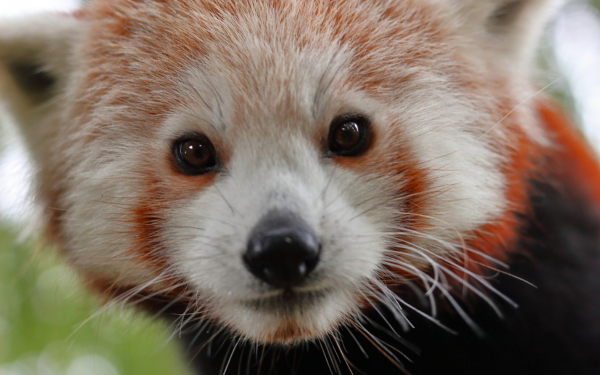
We are also members of both by EAZA (European Association of Zoos and Aquaria) and BIAZA (British & Irish Association of Zoos and Aquariums) and adhere to all the animal care guidelines set by them. EAZA and BIAZA are both professional bodies dedicated to achieving the highest standards of animal care, conserving the natural world through research and conservation, and educating and inspiring visitors. Both EAZA and BIAZA ensure all their members adhere to these standards by conducting accreditation programs, which are impartial inspections scrutinising zoos' activities.
There is always something to learn from our animals and we have welcomed many scientific research projects to Drusillas, some of these include:
- Habitat usage of captive rock hyrax, common marmosets, squirrel monkeys, emperor tamarins, and dwarf mongooses with UV lightening in the indoor group.
- Research into the behaviour of captive red pandas in comparison with their wild counterparts.
- Assessing how ring-tailed lemurs respond to different enrichment provided and how it affects their activity budget.
- What factors affect activity and enclosure usage of gibbons.
- Giant anteater introductions the theory and practicality using case studies from zoological collections.
- Do environmental factors affect the flight behaviour and activity levels of zoo-based fruit bats.
On a more day-to-day level, our highly qualified team of keepers continually observe and monitor each animal's behaviour. Skilled in both animal husbandry (putting in place preventive measures), animal behaviour, and welfare, the keepers are experts in the needs of each species and apply their knowledge to ensure our animals' diets, habitats and social groups are right for them.
To aid in this observation and data collection, Drusillas utilises a well-structured data collection and management system (ZIMS) to ensure records of animal behaviours and health are shared amongst the zoo industry. This enables the keeping team to identify any animal welfare issues quickly and promptly, so any extra needs can be acted on. We also work with a team of specialised vets who can provide the right treatments, medications, or interventions to keep our animals happy and healthy.
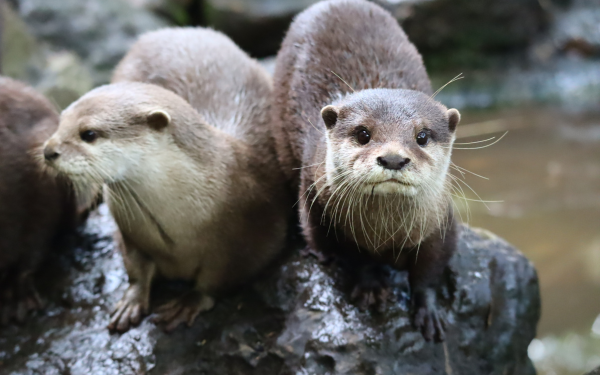
Nutrition is also key to supporting immune health and preventing nutritional deficiencies, so each of our animal species has an individual diet to support their unique needs. All diets are carefully constructed with research, knowledge of typical diets, group size and status of the individual/group which is regularly reviewed and updated. We even have our onsite vegetable garden which provides some of the animals with fresh produce!
Species thrive when they live in social groups similar to those they would inhabit in the wild. Some animals prefer to live solitary and only come together at breeding time. We mirror these preferences as much as possible in the populations at the zoo, which helps the animals feel at ease and encourages breeding. New babies are constantly born at the zoo, including critically endangered species such as cotton-top tamarins and Sulawesi black crested macaques. These births contribute towards Drusillas efforts to support conservation, in addition to the various conservation charities and projects we support.
Animals need access to the right amount of space, not just to meet their needs but to create the best possible habitat for them to thrive in, and this can vary from species to species.
Our enclosures are inspected by both EAZA, BIAZA and as part of the Secretary of State’s Standards in Modern Zoo Practice. All animal habitats are carefully designed and it’s not just about space, but also ensuring the enclosure is designed to make the best possible use of the area specific to each species, as well as relaying important conservation education messaging to a wider audience.
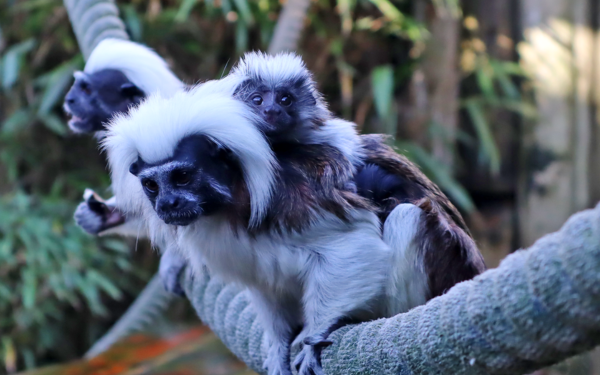
Everything in the habitat, from the size to branching (including thickness of branching), to the vegetation, lighting, and temperature is assessed to make sure it provides the best possible living space for the animals. It's also worth remembering that studies show that variety, challenges, and options within animal habitats can be just as important as physical space.
Our zoo provides a fascinating opportunity to learn about animals and their natural behaviours. Watch the animals in their habitats and you might spot them feeding, sleeping, playing, mating, looking after their young, and much more! Different species often approach these things in various ways, see what you can learn the next time you visit.
Visitors are sometimes concerned if they notice animals walking up and down, or 'pacing', but often pacing doesn’t mean an animal is distressed. For many animals, it’s a natural behaviour and they would ‘pace’ in the wild too. The animal’s behaviour, posture, and demeanour need to be considered before judgement can be passed on whether what you are seeing is negative pacing.
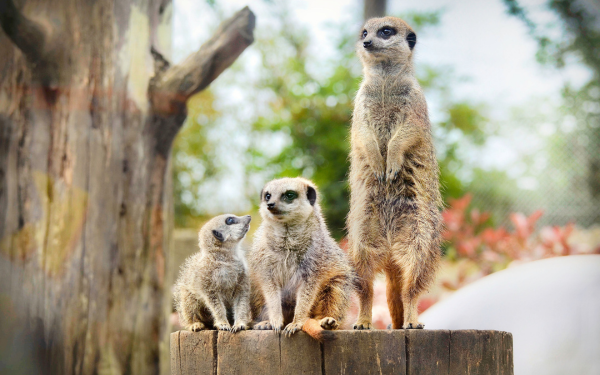
Walking up and down can simply indicate anticipation, either before food or after interaction with keepers. Far from the animal being upset, it can often signify they’re looking forward to their next snack. Pacing is also a behaviour that releases endorphins in animals and makes them feel happy and relaxed. As with any behaviour that releases endorphins, the animal then wants to repeat this to make them feel good.
If you notice any animal behaviour you have questions about, it’s always worth asking a member of our friendly zoo team.
Our animals are offered daily enrichment activities! Our keepers pride themselves on coming up with inventive puzzles and tasks to keep their bodies and minds stimulated and engaged. Environment enrichment forms part of the daily routine for everyone here at the zoo.
There are lots of different types of enrichment that can be offered, all of which are designed to encourage natural and instinctive behaviours and also provide fab physical exercise.
Hiding food around habitats or inside puzzle toys encourages animals’ natural foraging behaviour and motivates them to ‘hunt’ for their food, as they would do in the wild. Food would not be simply presented to an animal in the wild, so our keepers try encourage them to 'work for their food' in imaginative ways.
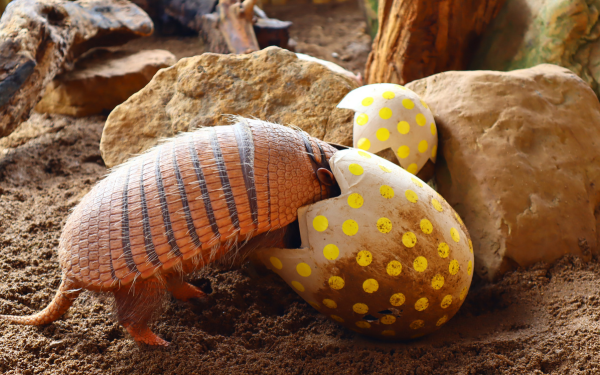
You might also spot animals investigating different scents, sometimes in special balls (our lynx love the smell of sandalwood and serval cats are big fans of catnip!), or playing with some of the objects keepers place in their habitats. Scent enrichment can trigger a number of positive behaviours and engage their noses, a key sense they would constantly use in the wild.
As far as we can, we like to use enrichment equipment made from natural materials so use wooden toys, bamboo puzzles, and often forage for browse and plant clippings in nearby woodlands - our armadillos are partcularly fond of rotten logs!
We sometimes offer themed enrichment, for example, an animal ‘tea party’ for King Charles' coronation, or ball games for Wimbledon - these activities may look like just a bit of fun, but anything new to explore and investigate will help an animal to feel stimulated and benefit their overall health.
Research into animal behaviour shows that variety, challenges, and options within animal habitats can be just as important as physical space, so enrichment is always a top priority at Drusillas.
No. As cute and cuddly as many of our animals may seem, they do not enjoy being touched or handled, so all our animal experiences are non-contact, but some may take snacks from your hands under the supervision of our keeper team!
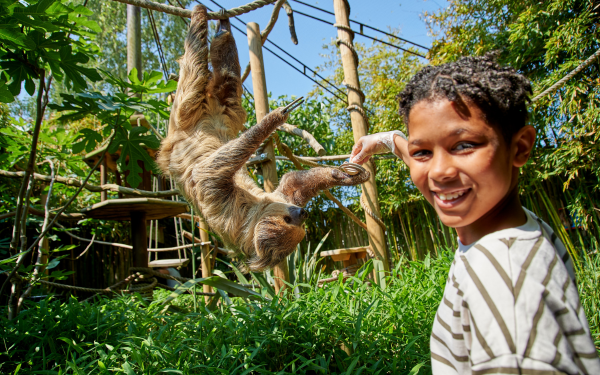
The animals in our zoo are not domesticated, and while they are living in captivity, we still aim to keep them as wild as possible. This is why we don’t allow any physical contact with them and don't have encounters with animals who are uncomfortable with human interaction. We would never expect an animal to do something that is not their choice.
During our animal experiences, keepers and the participant offer the animals a selection of their favourite treats. Usually, this encourages the animal to engage with the person taking part in the encounter of their own free will. All our animal encounters are carried out in low numbers, generally as a one to one and supervised by our expert keepers, which ensures both you and our animals have a wonderful time. You can learn more about them with this very special up-close experience, and they get to enjoy their favourite snacks!
EXPLORE MORE

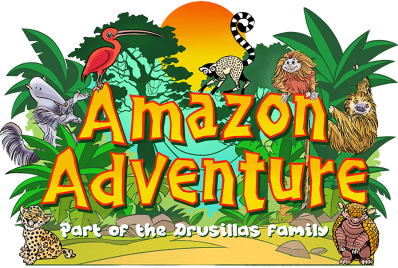
Have you visited our NEW soft play in Tunbridge Wells?
A new WILD play experience, part of the Drusillas family
Sign up to our mailing list to receive all the latest vouchers and exclusive offers!
All emails include an unsubscribe link. You may opt-out at any time. See our privacy policy here.










